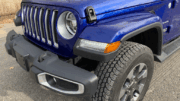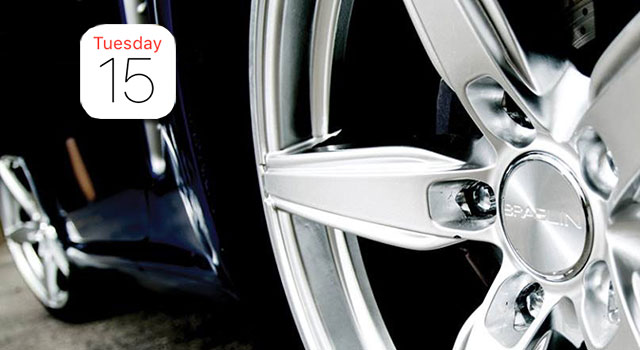Here are our tips for buying summer/all-season tires!
Choosing the right tires for your vehicle is very important! This will ensure optimum safety for you and your passengers. In fact, making the wrong choice can greatly affect the handling of your car (e.g. risk of hydroplaning, reduced grip) as well as its braking power. Therefore, choosing the right tires is essential!
However, tire buying guides often focus mainly on winter tires. This is understandable: it’s during the winter that conditions are the most difficult to drive in. However, choosing the right summer or all-season tires is just as important! Blackcircles.ca, your online tire specialist in Canada, shares with you these valuable tips to choose the best summer or all-season tires!
Summer tires: performance tires, exclusively for the summer!
First of all, it is important to define the types of tires available for your summer vehicle.
First are “summer” tires, which in fact should be referred to as “performance” tires. They were originally designed for driving enthusiasts who wanted the best tire for their sports car. The goal was clear: to have tires that would allow them to fully exploit the capabilities of their vehicle!
However, more and more drivers wanted to enjoy all that their car could offer in the summer, and began choosing these tires instead. Maximized grip, optimized road handling, and better braking than with all-season tires. Simply put, when it’s hot, summer tires are superior to all-season tires both on dry and wet surfaces.
However, you have to be careful with summer tires! As soon as fall arrives, their performance drops drastically. Indeed, at 7 °C and below, their rubber becomes very hard. This causes their usefulness to drop drastically, and if it gets much colder, they are practically useless, including an increased risk of hydroplaning. This is an important factor that must be taken into account before buying summer tires!
All-season tires: More versatile, but no replacement for winter tires.
To recap, summer tires must ABSOLUTELY be replaced as soon as the temperature drops below 7 degrees Celsius! As soon as fall arrives, the temperature can drop at any moment, so what can you use then if you don’t want to switch so soon to winter tires? That’s when all-season tires really shine, and they are the second type of tire you should consider for your summer vehicle!
All-season tires enjoy superior versatility: they can be used when the mercury drops while providing great performance in terms of handling and braking power, as well as generating excellent grip in hot weather. That being said, they do not perform well enough to be safe during our harsh winters. It would therefore be more fitting to call them “3-season” tires!
All in all, they are more versatile than summer tires, with only slightly inferior performance. Feel free to use them from spring to fall, up until winter tires become mandatory again!
So: summer tires or all-season tires? It depends on your situation!
When comparing summer tires vs. all-season tires, you should choose the model that best suits your situation.
That’s easier said than done, so here are some suggestions that will help you: your vehicle, like any car in the country, must meet certain requirements in order to remain safe. And that starts with the load index, which is the maximum load a tire can carry. If we multiply this value by two, the value obtained must be greater than or equal to the total weight of the axle it supports.
The law is clear: you must use tires with a load index at least equal to that of the original tires. The speed index, on the other hand, represents the speed at which a tire can travel safely for a predetermined load index. For the summer season, the law prohibits fitting tires with a speed rating lower than the manufacturer’s recommendations. However, you can always equip tires with a higher speed rating.
These two constraints, in addition to the size of your tires, might eliminate all but one of your choices. For example, you may not be able to choose summer tires for your car or, conversely, all-season tires, because they simply don’t fit your car. You will be able to find these values, as well as other relevant information such as the diameter of the rim on which it can be fitted, on the sidewall of the tire. The code resembles the following model: 111/1A11 11A.
Generally speaking, if you drive a premium or high-performance vehicle, summer tires will be the better choice. For vehicles from popular manufacturers (ex.: Honda, Ford, Kia, Toyota), all-season tires will be more appropriate.
In addition to these values and the type of vehicle, you will need to determine your driver profile. Do you want to get the best performance out of your vehicle? Then summer/performance tires are for you! Want to use your tires when it’s cooler but also in the summer? Opt for all-season tires instead!
The question of versatility also brings up to the question of budget. For the same price, you can use all-season tires for longer periods of time every year when compared to performance tires, which can provide the exceptional performance they promise for very limited time periods. Performance tires also have a shorter lifespan and are usually more expensive. They can also generate higher rolling noise, so if you do a lot driving on the highway, avoid performance tires!
What about winter tires in the summer? The answer is no!
All of this can seem very complicated, considering all the information to grapple with. “Why not use winter tires in the summer?” you may ask! If their rubber offers grip in cold weather, it should perform just as well in hot weather.
But you would be wrong to think so! Exposing the rubber of winter tires to heat increases the likelihood that they will burst. If this happens, you could lose control of your car! The same goes for the risks of hydroplaning, which can also increase; winter tires evacuate water less effectively than summer tires. Last but not least, CAA Quebec has conducted a study on the efficiency of winter tires during the summer. The result: longer braking distances compared to all-season tires!
Are you a driving enthusiast? Choose summer tires! If not, opt for all-season tires!
That sums it up! If driving is your passion, or if you drive a sports or premium vehicle, only summer tires will meet your expectations. However, be aware that you will only be able to take full advantage of their performance when weather conditions permit it.
If, on the other hand, you are looking to use your tires in cooler weather in addition to driving in the summer, opt for all-season tires. This will allow you to drive safely even in deteriorating conditions, while saving you money at the time of purchase. However, for your safety, please respect the law regarding load index, speed, and rim size.
To order your tires for the summer months at the best price on the market, visit blackcircles.ca! You can also refer to their spring buying guide, available on their website, to find even more information on this subject.





